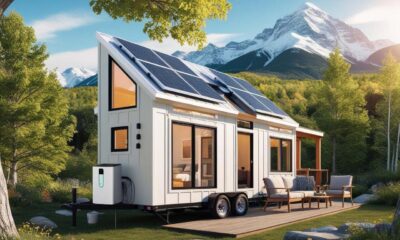House on Wheel
For Sale: 23′ Fully off-Grid Amazing Skoolie
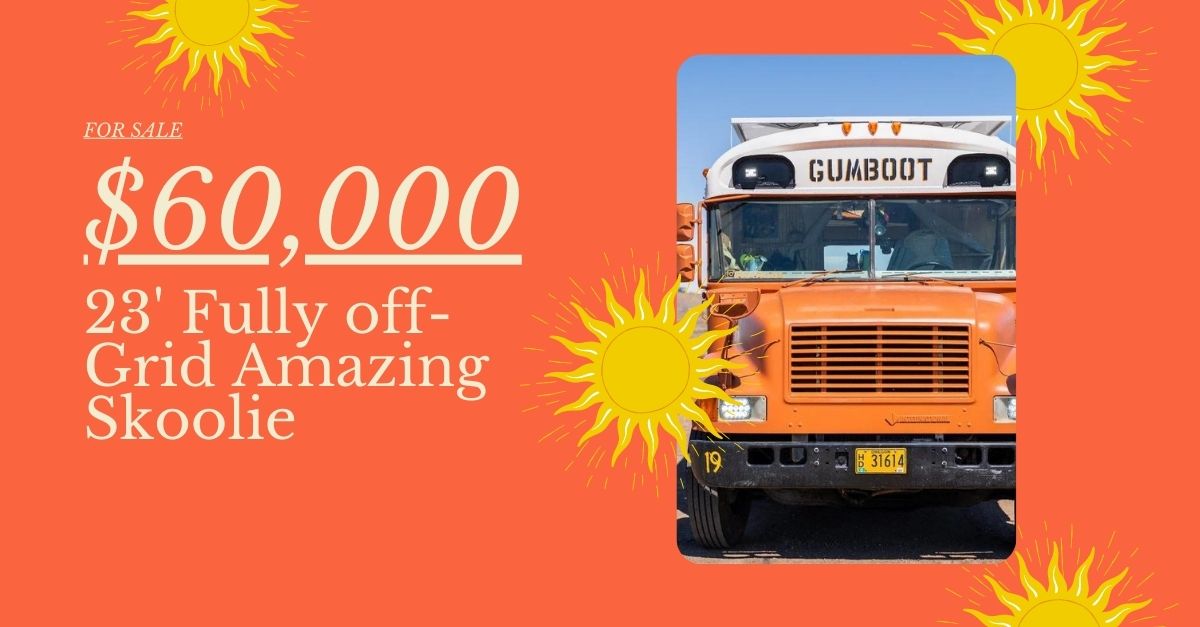
Are you dreaming of a unique and mobile tiny house? Look no further! We have an incredible opportunity for you to own a fully off-grid, 23-foot skoolie located in beautiful Boulder, Colorado. This meticulously maintained bus is ready to take you on your next adventure, offering the freedom to explore while enjoying the comforts of home. Let’s dive into the amazing features and details of this incredible tiny house on wheels.
Overview
- Bus: Retired in 2019 from the New Mexico Cimarron School District, this 2000 International 3800 skoolie is in impeccable condition, with not a speck of rust thanks to its desert origins.
- Mileage: Having covered nearly 30,000 miles, this bus is just getting broken in at 127,000 miles.
- Body: The Bluebird Handybus body is compact yet spacious, measuring 23 feet bumper to bumper. With a folding hitch rack, it extends to 26 feet, making it easy to park in regular spaces.
- Maintenance: This skoolie has received meticulous care, with regular replacements and inspections, including radiator, water pump, thermostat, hoses and clamps, crank seal, batteries, fuel pump and filters, and much more. The tires were even replaced by the school district right before retirement, offering approximately 5 more years of life.
Off-Grid Power
- Electrical: Professionally designed by Just Roaming Designs and installed by a Limitless Vans Technician, the off-grid electrical system is powered by high-quality Victorn components. It includes (3) 200W rich mega solar panels, a 3000W Victorn inverter charger, a 200ah 24v Victorn lithium battery, and more.
- Touchscreen Control: With a touchscreen control panel, managing your power usage is a breeze.
- Lighting: Enjoy well-lit living spaces with (2) 13ft diffused LED strips inset into the ceiling, operated by (2) 3-way dimming switches. Task lights and LED floodlights provide ample illumination throughout the bus.
- Maxx Air Fans: Stay comfortable with (2) Maxx Air fans featuring rain sensors, ensuring fresh air circulation even when you’re away.
Water and Plumbing
- Telescoping Passenger Seat: Make the most of your space with a telescoping passenger seat that can be tucked away when not in use.
- Pulley Bed Frame: Maximize your living area with a pulley bed frame, providing versatility and convenience.
- Underbody Storage: The exterior underbody storage box offers ample room for all your adventure gear and essentials.
Amenities
- Fresh Water Tank: A 42-gallon fresh water tank provides you with a sufficient supply for your daily needs.
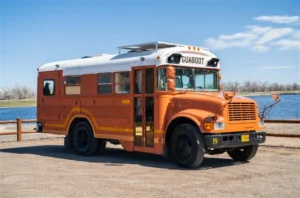

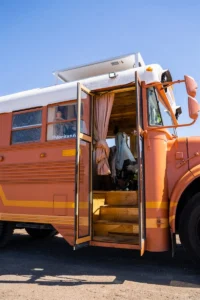

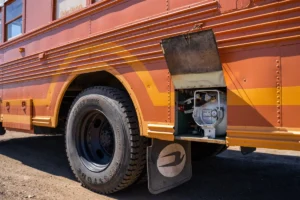
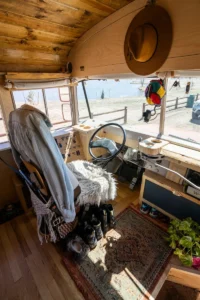
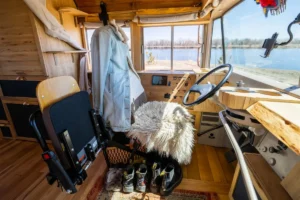
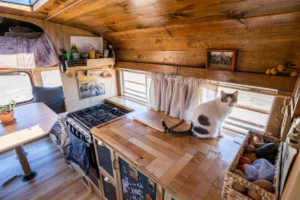
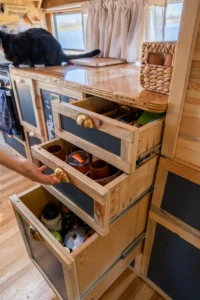
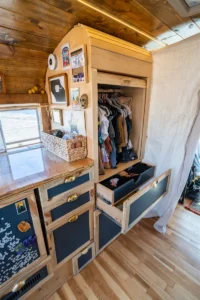

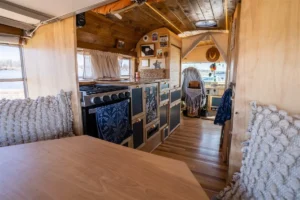
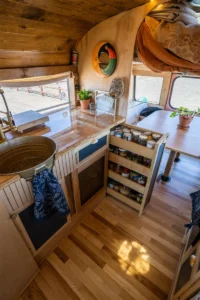
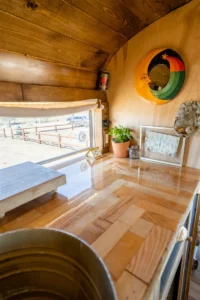
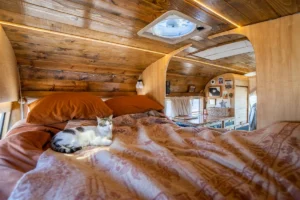
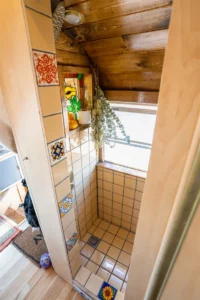
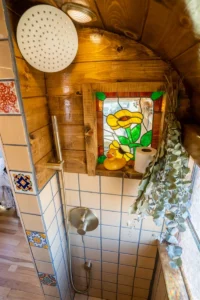
If you’re in the market for a unique and fully off-grid tiny house on wheels, this 23′ skoolie in Boulder, Colorado, is an opportunity you won’t want to miss. With its impeccable condition, thoughtful maintenance, and professional fabrication, this bus offers both reliability and comfort for your alternative living dreams.
Looking for alternative living options? Check out our blog post on affordable container homes. Discover the possibilities of creating your dream home in a compact and eco-friendly space. Read more here.
Source : www.tinyhouselistings.com









